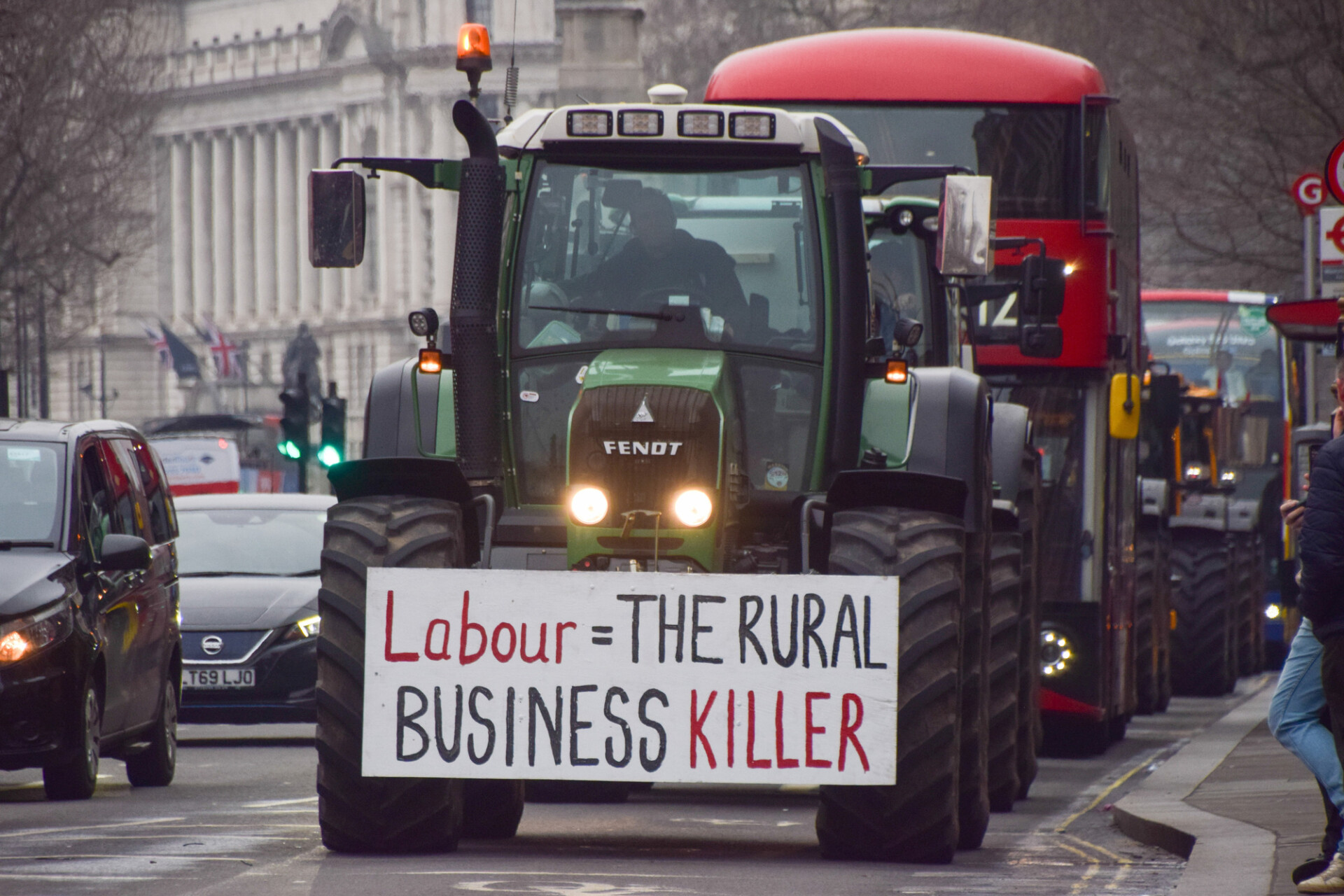Keir Starmer is hardly short of enemies, so it’s no wonder he’s trying to mend fences with Britain’s furious farmers.
The seeds of the conflict were sown last year when Rachel Reeves unveiled her confiscatory family farm tax. Despite continuing protests, there’s no sign of any backtracking on the Chancellor’s part. However, Steve Reed — the Secretary of State for Environment, Food and Rural Affairs — is bringing a peace offering to this week’s National Farmers Union annual conference.
Specifically, he’s promising more public sector procurement of British produce. According to The Guardian, he’ll announce a target for “hospitals, schools and prisons” to source “at least half of all food from farms with the highest welfare standards, which should benefit British growers and food producers”.
With £5 billion of contracts at stake, this appears to be more than a gimmick. However, it’s worth bearing in mind that, across the economy, we already get 62% of our food from domestic producers. So even if Labour does want the public sector to buy British, a 50% target isn’t exactly stretching.
Recent studies also show that of every £1 of food purchased by British consumers, British farmers receive just one penny of profit. We’ll have to see what’s in the fine print of the Government’s new policy, but if it can’t improve on the margins offered by supermarkets, then it’s hard to see it making a big difference to farmers’ incomes. In particular, the policy needs to help the small-and-medium-sized family farms most heavily impacted by the changes to inheritance tax. If the new public sector contracts are hoovered up by giant agri-businesses, then the protesters who besieged Reed last month won’t be pacified. The minister will have to prove that his policy won’t just help farmers, but those most in need.
However, that raises the question as to whether the state should use its purchasing power to socially engineer the economy. Labour’s thinking here is shaped by the “community wealth building” approach pioneered in the UK by Preston City Council. This involves using public procurement and other funding streams to build up local institutions and enterprises — thus keeping as much money as possible circulating in the local economy. It’s a policy of interfering with the market, yet on the other hand there’s some evidence that it works — which is why it’s been seized upon by a national Labour Party desperate for new ideas.
But while a council might be able to run a mini-industrial strategy for its own local economy, does Whitehall expect to manage the entirety of British farming in the same way? Ministers already exercise a major degree of control through support payments (i.e. subsidies). If they also want to manipulate the purchase of farm products, then the independence of our farmers is further undermined. At this rate, the state might as well employ them all directly.
Socialists have always been keen on collectivizing agriculture. When one considers the combined effect of farm subsidies, top-down food procurement and the confiscation of land through inheritance tax, Labour has never been closer to achieving exactly this objective.











Join the discussion
Join like minded readers that support our journalism by becoming a paid subscriber
To join the discussion in the comments, become a paid subscriber.
Join like minded readers that support our journalism, read unlimited articles and enjoy other subscriber-only benefits.
Subscribe